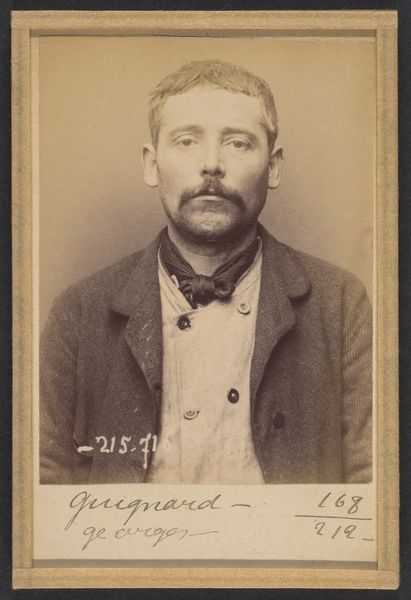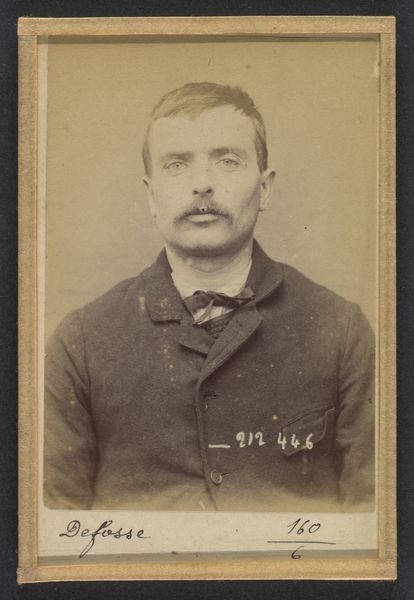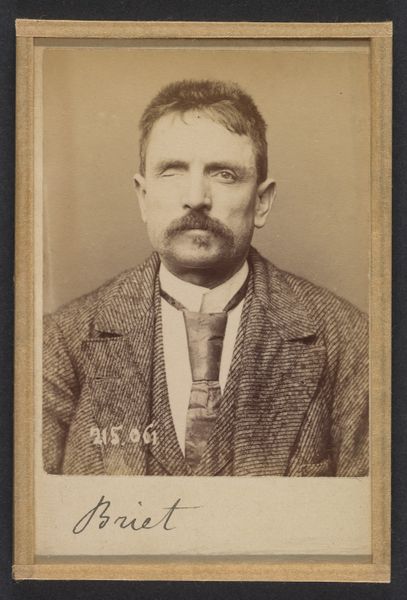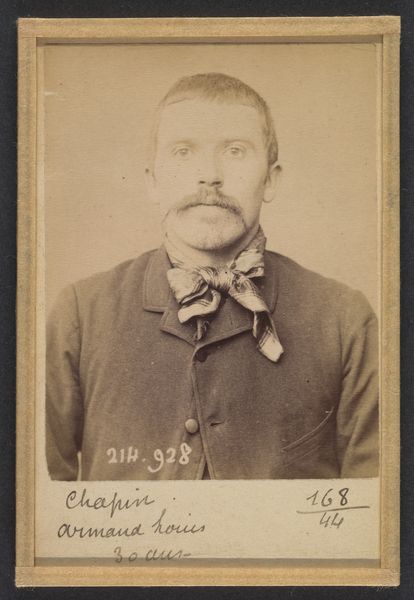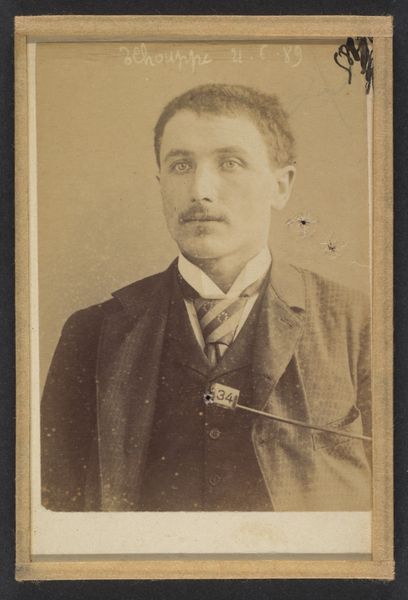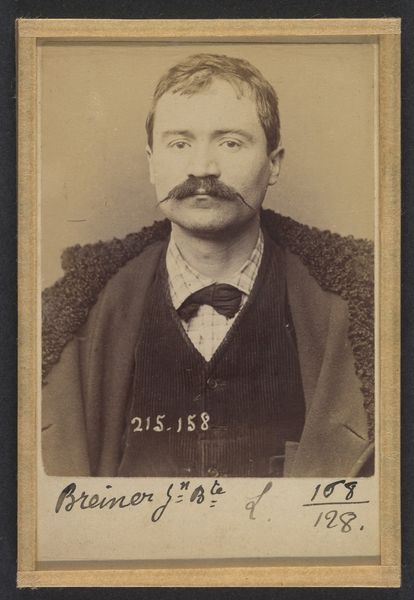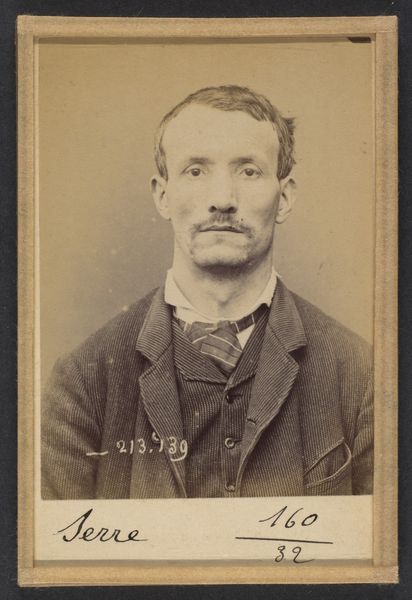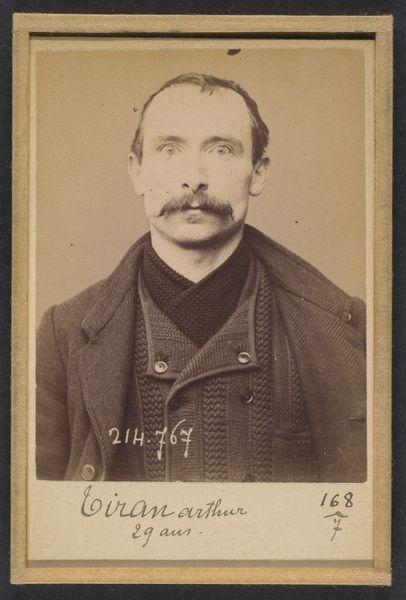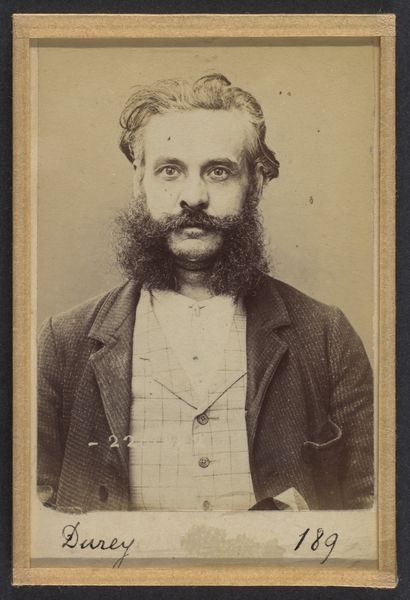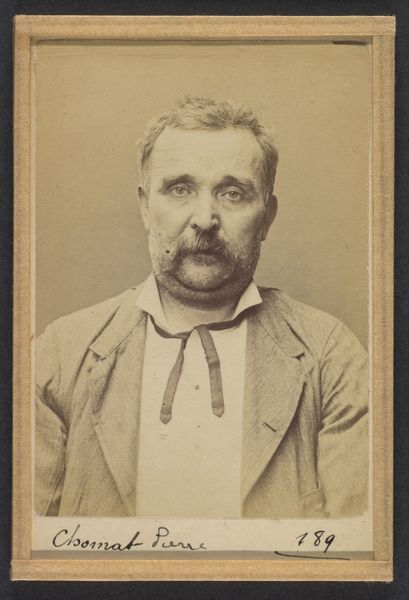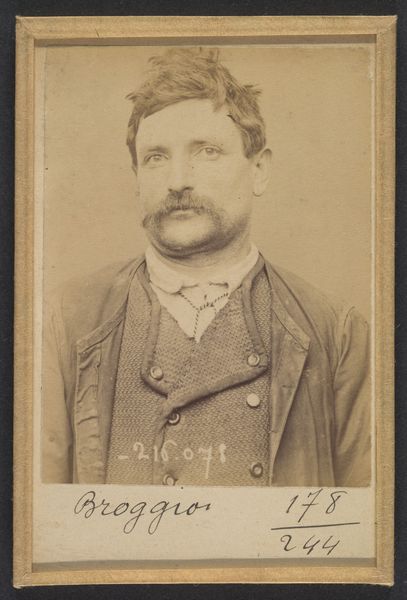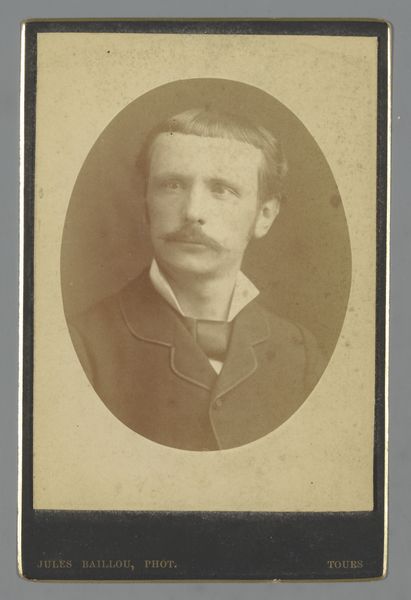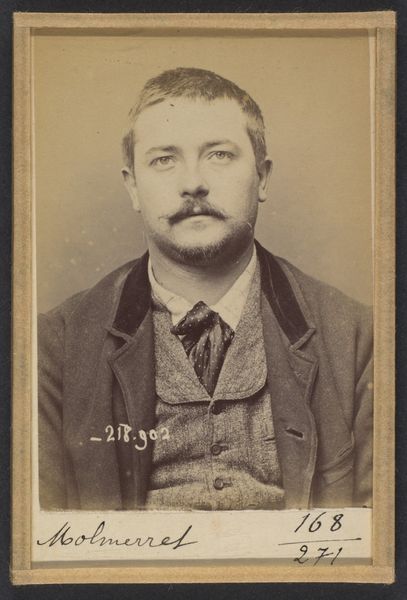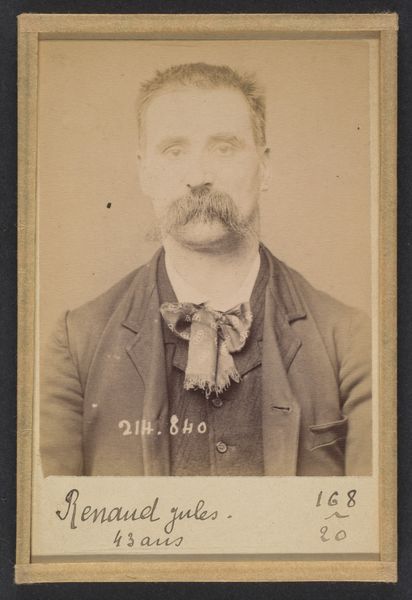
Pouget. Émile, Jean, Joseph. 31 ans, né le 12/10/60 à Rodez (Aveyron). Publiciste. Anarchiste. 26/4/92. 1892
0:00
0:00
photography
#
portrait
#
photography
#
historical photography
#
19th century
#
men
#
realism
Dimensions: 10.5 x 7 x 0.5 cm (4 1/8 x 2 3/4 x 3/16 in.) each
Copyright: Public Domain
Curator: This arresting image, entitled "Pouget. Émile, Jean, Joseph. 31 ans, né le 12/10/60 à Rodez (Aveyron). Publiciste. Anarchiste. 26/4/92.," is a photograph attributed to Alphonse Bertillon, dating from 1892. Editor: My immediate impression is one of startling directness. The tight crop and the sitter's unflinching gaze create an undeniably confrontational encounter, heightened by the monochromatic palette. It’s not conventionally pleasing but grips you. Curator: It's a fascinating piece, as it documents the intersection of early photographic techniques and emergent methods of policing. Bertillon pioneered anthropometry and forensic photography; this image, as the lengthy title suggests, served a specific purpose: identifying and tracking individuals deemed potentially problematic to the state. Editor: So, context overwhelms composition. Though stark, I do notice the almost symmetrical balance in the subject’s face, bisected by that rather magnificent moustache! Even within the clinical framework of this portrait, aspects of the sitter’s character seems palpable—defiance, perhaps? Curator: Undoubtedly. It's easy to see why Émile Pouget, as a noted anarchist and publicist, would be someone the authorities kept tabs on. This image presents a curious tension: intended to classify and contain, yet inadvertently preserves an aspect of individual spirit resisting categorization. It makes one wonder about the ethics of early surveillance. Editor: The photograph’s grainy texture lends it an immediacy. Note how the light delicately models the sitter's features, throwing into sharp relief those intense eyes. The overall effect elevates it beyond mere documentation to a psychological study. Curator: And it underscores how visual media can be tools of social control, particularly as technologies advance, potentially shaping both public perception and the realities they aim to capture. It speaks volumes about anxieties surrounding dissent and the role of visual data in defining and controlling societal norms. Editor: In that light, this stark, straightforward image becomes a haunting and strangely poetic artefact from another era. Curator: A provocative window onto late 19th-century French society and a meditation on the power of images.
Comments
No comments
Be the first to comment and join the conversation on the ultimate creative platform.
